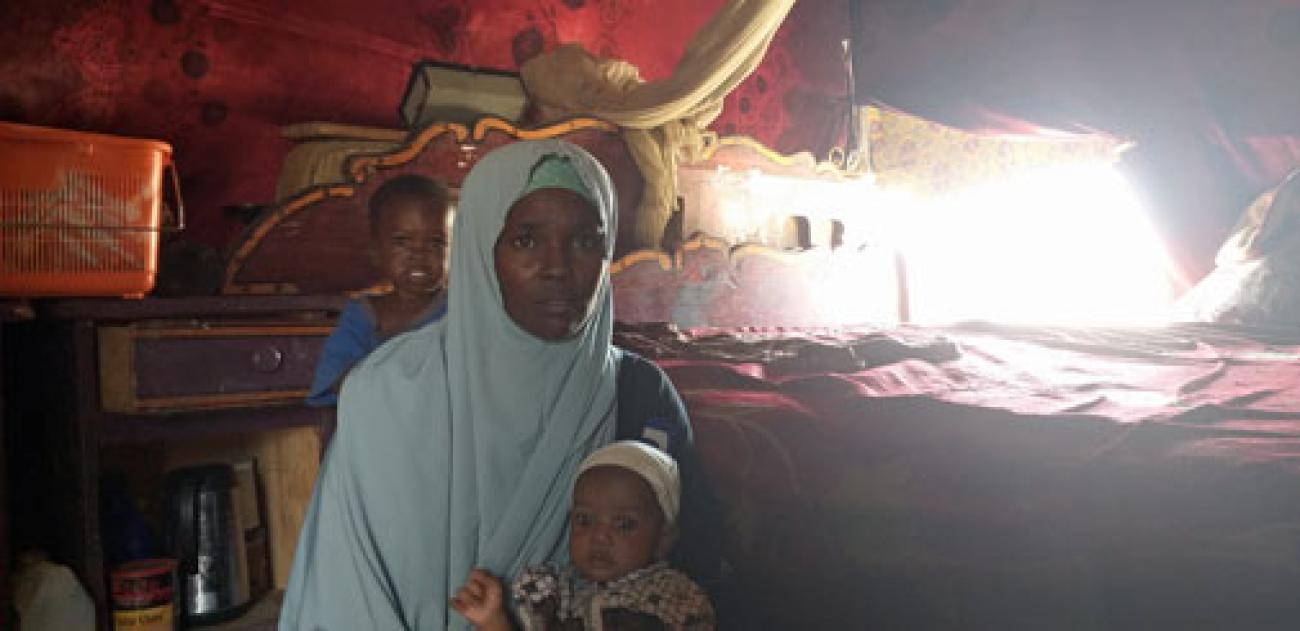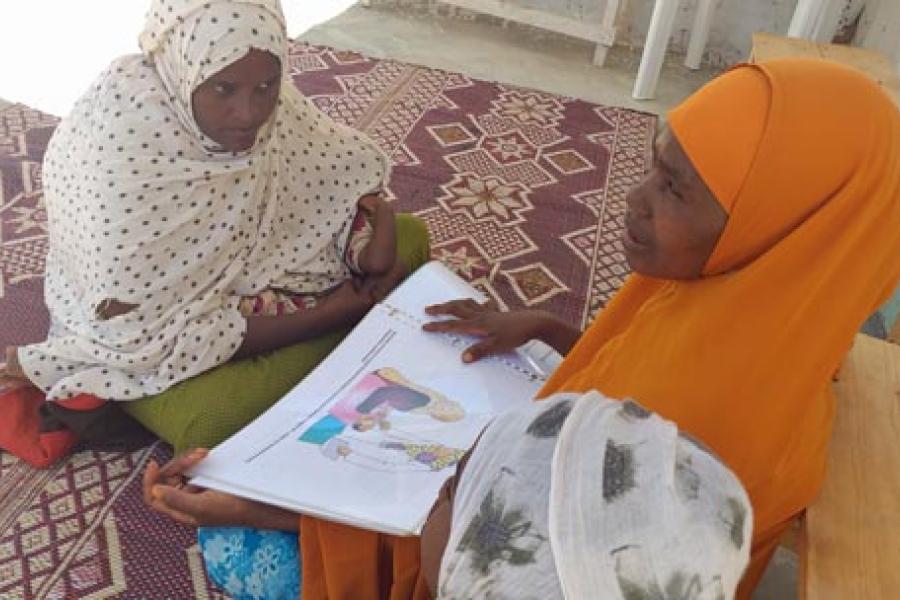Raising awareness and dispelling misconceptions: informing and empowering mothers in Puntland

Asha, a mother of three, sits in their makeshift house in Bul Mingis Internally Displaced People’s (IDP) camps in Bosaso.
By Muna Mohamoud, UNICEF Communications for Development (C4D) Officer
BOSASO, Somalia - Asha, a mother of three, sits in their makeshift house in Bul Mingis Internally Displaced People’s (IDP) camps in Bosaso, with Ahmed, her one-month-old bundle of joy on her lap. Ahmed looks full, happy and healthy as his mother just finished breastfeeding him. Asha is determined to feed her baby only breastmilk for his first 6 months. However, not so long ago, Asha, along with many other mothers living in the IDP camp, shared the misconception that breastmilk alone wasn’t enough for their babies. Therefore, many mothers resorted to using formula milk or water mixed with sugar to supplement their breastfeeding, which would ultimately affect the child’s health and nutritional status.
“It’s very common for mothers to give their babies sugar water along with, or instead of breastmilk. We didn’t know that breastmilk already has all the water the baby needs and that giving our babies sugar water can prevent them from successfully breastfeeding because it makes them feel full” said Asha.
UNICEF in partnership with Puntland Minority Women Organization (PMWDO) worked to inform and empower parents with knowledge about their children’s nutrition needs. Through the Behavioral Change Communications Project Among the IDP Camps in Puntland, UNICEF and PMWDO worked in four IDP camps in Bosaso, Gardo, Garowe and Galkayo, Puntland, Somalia. The project aimed to improve parent’s knowledge, attitude and practices by implementing awareness-raising and social mobilization activities such as house-to-house visits and public forums and counselling sessions with mothers, caregivers and other key community members. Through the project, social mobilizers and health workers shared important messages on health, nutrition, WASH and protection with mothers, expectant women and caregivers.
Thanks to these activities mothers like Asha are now encouraged and committed to doing better to ensure the health and wellbeing of their children. From adopting exclusive breastfeeding, adequate nutrition, hygiene, and sanitation practices such as hand washing with soap and ensuring that their children are immunized.
“The project helped us understand that taking simple yet profound actions such as cleaning our houses, disposing of waste properly and taking our children to the health facility for their planned vaccinations and treatment can prevent so many sicknesses and save us a lot of money and trouble as mothers,” said one of the mothers in Shabelle IDP camps in Gardo town.
The project also helped dispel some of the mother’s common negative misconceptions about giving birth at health facilities. Asha is one of the many mothers that we met who have decided to give birth at a health facility under the care of a skilled birth attendant who helped make her delivery both safer and less complicated. Asha’s change of mind was due to the regular counseling and visits from the social mobilizers who convinced her to do regular check-ins with the health facilities particularly around the time of her delivery.

“Like so many mothers, I have always given birth at home. So many mothers lost their babies or their own lives this way because of excessive bleeding and other complications,” explained Saeda, another mother at Shabelle IDP camp. “I don’t think I would’ve opted to give birth at the MCH, I have always believed that you can’t get privacy during labour at the MCH, but I was wrong. My privacy was respected, and I was taken care of by the midwife and nurses there.” She continued.
The project provided more than 13,000 households with information on various topics including Open defection, hand washing, water treatment, diarrhea, sanitation, hygiene, Immunization, vaccination, polio, Awareness on Female Genital Mutilation/Cutting, including 316 mothers who were reached through individual counseling by health workers.
Link to original story.


